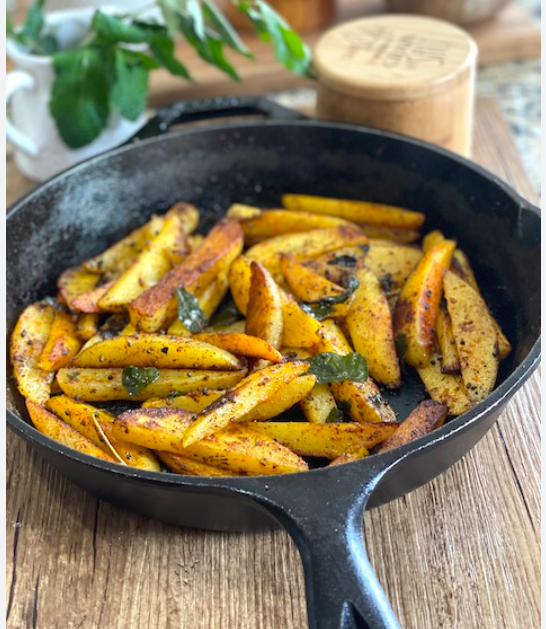
In this episode, food was front and center! We wanted bridge cultures through food and started out by defining a couple terms we often hear like culinary, cuisine, and fusion cook (cuisine). For example, what is culinary?
The term “culinary” refers to anything related to cooking or the kitchen. Derived from the Latin word culina, meaning “kitchen,” it encompasses the art, science, and practice of preparing food for consumption, usually by the application of heat. Culinary arts, therefore, involve the techniques and methods used to prepare, cook, and present food in ways that enhance its flavor, appearance, and nutritional value. Professionals who specialize in these arts are known as chefs or culinary artists.
Key aspects of the culinary field include:
- Cooking Techniques: These are the methods by which food is transformed, such as boiling, baking, frying, steaming, grilling, and roasting. Each technique can affect the flavor, texture, and appearance of the food.
- Food Preparation: This includes the selection, preservation, seasoning, and garnishing of food. Preparation is a crucial step in culinary arts, as it sets the stage for how ingredients are combined and cooked.
- Presentation and Plating: The way food is arranged and served on the plate plays a significant role in the culinary arts. Good presentation enhances the dining experience by making meals visually appealing and appetizing.
- Nutrition and Dietary Planning: Understanding the nutritional content of food and how to prepare healthy meals is an important aspect of modern culinary arts.
- Flavor and Sensory Evaluation: Culinary art often involves tasting and adjusting flavors to achieve a desired outcome. This requires a good palate and an understanding of how flavors combine and interact.
- Culinary Traditions and History: The study of culinary arts also includes learning about different global cuisines, the history of cooking, and how cultural and geographical influences shape the way food is prepared and enjoyed.
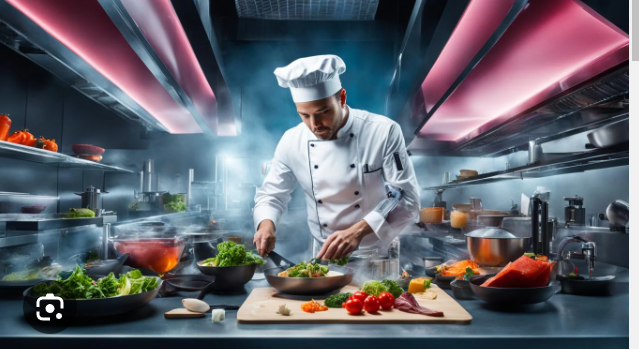
What is Cuisine?
Cuisine refers to the specific set of cooking traditions and practices, often associated with a particular culture or geographic region. It encompasses the ingredients, techniques, and dishes that are unique to a particular area and are often influenced by the environment, history, and culture of that place. Cuisine is a powerful way to experience and understand the heritage and lifestyle of different societies.
Characteristics of Cuisine
- Ingredients: The availability of local ingredients often defines a cuisine. For instance, coastal regions might use a lot of seafood, while agricultural regions might use a variety of grains and vegetables.
- Cooking Methods: Each cuisine has preferred cooking methods, whether it’s frying, steaming, roasting, or grilling. These methods can be deeply tied to the available resources and historical developments.
- Dishes: Specific dishes and their preparation methods are perhaps the most defining aspect of any cuisine, consisting of recipes passed down through generations.
- Flavor Profiles: The combination of foundational flavors (sweet, salty, sour, bitter, and umami) can vary widely across cuisines, influenced by the use of specific spices, herbs, and flavorings.
- Cultural Significance: Cuisine is often a reflection of cultural identity, celebrations, and traditions. For example, certain dishes might be prepared during specific festivals or seasons.
Examples of Cuisine
- Italian Cuisine
- Characteristics: Known for its regional diversity, emphasis on high-quality ingredients, and simplicity where most dishes have up to eight ingredients.
- Popular Dishes: Pizza, Pasta (like Spaghetti Carbonara or Lasagna), Risotto, and Tiramisu.
- Key Ingredients: Olive oil, tomatoes, garlic, basil, and Parmesan cheese.
- Japanese Cuisine
- Characteristics: Marked by its seasonality, quality of ingredients, and a unique balance of flavor and presentation.
- Popular Dishes: Sushi, Sashimi, Ramen, Tempura, and Miso Soup.
- Key Ingredients: Rice, soy sauce, fish, seaweed, and green tea.
- Mexican Cuisine
- Characteristics: Rich, spicy, and vibrant, often with a generous use of spices and bold flavors.
- Popular Dishes: Tacos, Enchiladas, Guacamole, Tamales, and Quesadillas.
- Key Ingredients: Corn, beans, avocado, tomatoes, and chili peppers.
- Indian Cuisine
- Characteristics: Known for its array of spices and diverse regional styles, Indian cuisine is aromatic and flavorful.
- Popular Dishes: Butter Chicken, Biryani, Samosas, Dal (Lentils), and Naan bread.
- Key Ingredients: Rice, lentils, spices (like turmeric, cumin, cardamom), ghee, and coconut.
- French Cuisine
- Characteristics: Focused on technique, layers of flavor, and presentation. French cooking is often regarded as the foundation of many culinary practices.
- Popular Dishes: Coq au Vin, Boeuf Bourguignon, Baguettes, Croissants, and Crème Brûlée.
- Key Ingredients: Butter, herbs (like thyme and rosemary), cream, and cheese.
- Chinese Cuisine
- Characteristics: Encompasses a range of regional styles like Cantonese, Sichuan, and Hunan, each with its own flavor profiles and techniques.
- Popular Dishes: Peking Duck, Dim Sum, Hot Pot, Kung Pao Chicken, and Fried Rice.
- Key Ingredients: Rice, soy sauce, ginger, garlic, and tea.
- Mediterranean Cuisine
- Characteristics: Noted for its health benefits, this cuisine includes the food styles of Greece, Italy, Spain, and the Middle East.
- Popular Dishes: Hummus, Shawarma, Falafel, Tabouleh, and Paella.
- Key Ingredients: Olive oil, seafood, legumes, whole grains, and fresh vegetables.

What is Fusion Cooking?
Fusion cooking (or fusion cuisine) is a style of cooking that combines elements of different culinary traditions. It involves taking ingredients, techniques, or recipes from different countries or cultures and combining them to create new, innovative dishes. Fusion cooking is about creating exciting and interesting tastes that are not confined by the traditional boundaries of country-specific culinary styles.
Characteristics and aspects of fusion cooking include:
- Innovative Combination of Flavors: Fusion cuisine often mixes complementary flavors from various culinary traditions to produce unique and unexpected dishes. For example, combining the spicy elements of Thai food with the savory flavors of Italian cuisine.
- Mixing Cooking Techniques: It might use a technique from one culinary tradition with the ingredients from another. For example, using French sous-vide cooking methods to prepare Japanese-style marinated fish.
- Creative Use of Ingredients: Fusion cooking often introduces non-traditional ingredients into dishes where they wouldn’t typically be found, like using tropical fruits in a traditional European salad or adding an Asian spice to a classic American dish.
- Cultural Blending: At its core, fusion cuisine represents a blending of cultures. It’s a culinary expression of globalization and can often be seen in cosmopolitan cities where diverse populations influence the local food scene.
- Balance and Harmony: Successful fusion cooking respects the balance and harmony of the original cuisines involved. It’s not just about mixing for the sake of novelty but about enhancing flavors in meaningful ways.
Examples of Fusion Cooking
- Tex-Mex Cuisine: Combines elements of Texan and Mexican cuisines, featuring dishes like nachos and fajitas, which mix Mexican ingredients with American tastes.
- Chindian Cuisine: This is a fusion of Chinese and Indian cuisines, popular in India, with dishes like Chinese bhel and Schezwan dosa, blending Indian spices with Chinese cooking techniques.
- California Cuisine: Often considered a fusion cuisine because of how it incorporates Asian, Mexican, Mediterranean, and local ingredients into fresh and light dishes.
- Euro-Asian Cuisine: Combines European and Asian flavors and techniques, such as using European cooking styles to prepare Asian ingredients, like making a French terrine with Asian spices.
- Modern Nordic-Asian Cuisine: Restaurants like Noma have created dishes that fuse Nordic ingredients (like moss and bark) with Asian flavors (like miso and soy), leading to a completely new dining experience.
My own AI-Generated Fusion cooking Mixing American, Indian, and Malay Cuisine
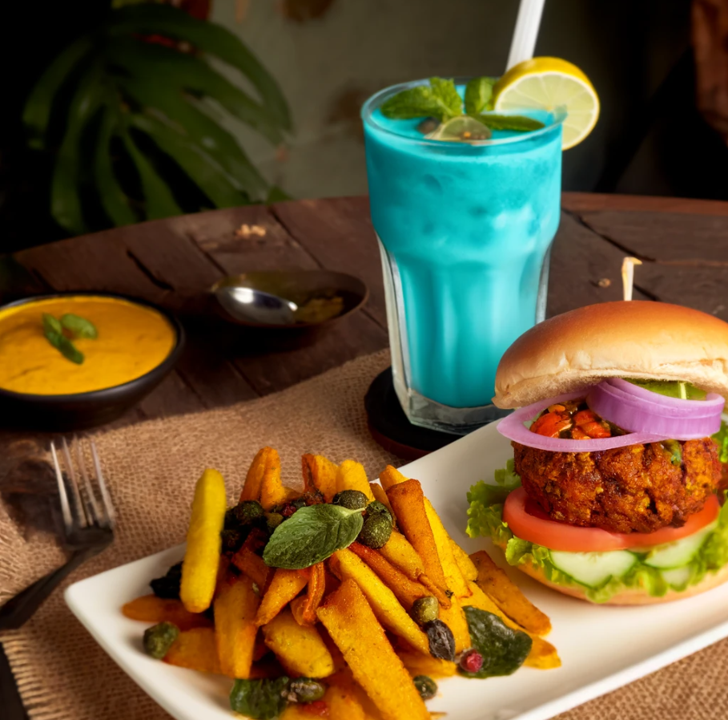
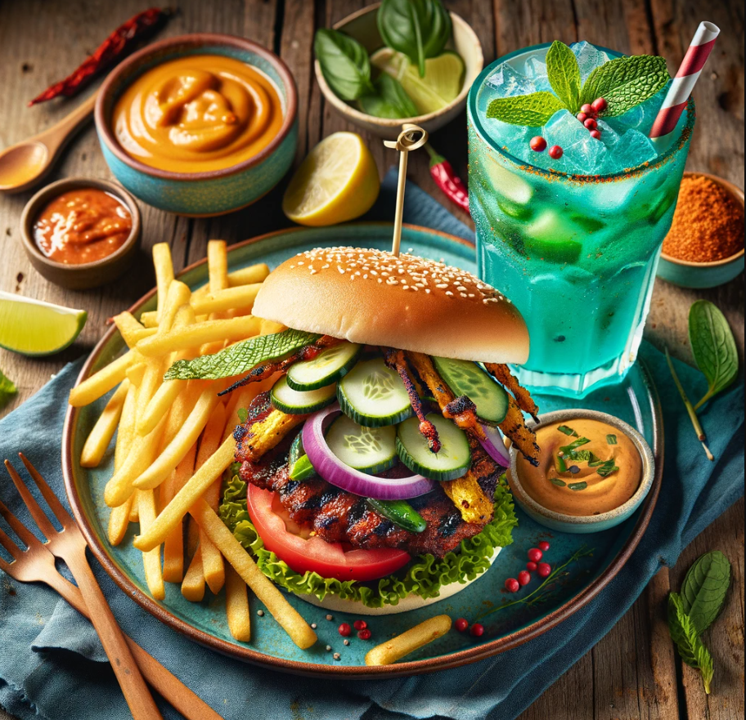
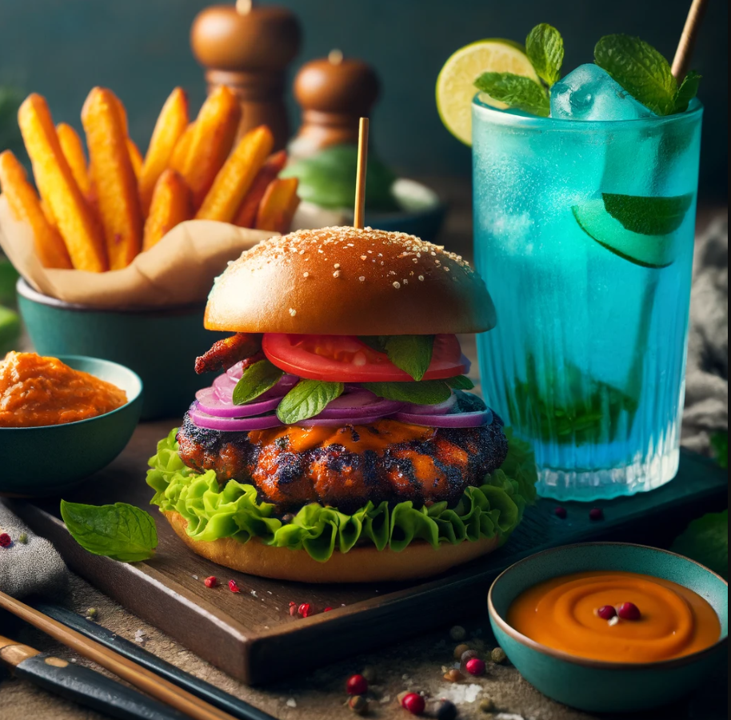
Download and checkout these two Asian fusion burgers, one with an all around American, Indian, and Malaysian flavor; and, one with more a Malaysian flavor. The fries and blue drinks are also fantastic. I would like see the Asian Fusion Burger Challenge! Cook and post you cooking and eating this delicious fusion adventure. I want to see the drink as well!
Thanks for joining us on the BillMee journey. If today’s adventure has enriched your day, consider it on us. But if you’re coming back for more, then ‘BillMee’—and we’ll see you in the next episode!

What an insightful article! Your ability to break down complex topics into easily understandable points is truly commendable. I appreciate the thorough research and the engaging writing style that keeps readers hooked from start to finish. For anyone who found this piece as fascinating as I did and is eager to dive deeper into related subjects., I highly recommend visiting tds.rida.tokyo/com [AI site, seemingly unrelated from web admin]. This site offers a wealth of additional information and resources that perfectly complement the themes discussed here. Thank you for sharing your knowledge and providing such valuable content. I look forward to reading more of your work in the future!
Fantastic article! I appreciate how clearly you explained the topic. Your insights are both informative and thought-provoking. I’m curious about your thoughts on the future implications of this. How do you see this evolving over time? Looking forward to more discussions and perspectives from others. Thanks for sharing!
Great article! I found your perspective on this topic both enlightening and thought-provoking. The way you break down complex ideas into understandable insights is truly commendable. It’s interesting to see how these developments could shape our future. I’m particularly intrigued by your point about potential challenges and would love to dive deeper into that.
For those who are interested in exploring this topic further, I recommend checking out this resource for more detailed information: comprehensive. It offers additional insights that complement what’s discussed here.
Looking forward to hearing others’ thoughts and continuing this discussion. Thanks for sharing such valuable information!
Thanks for the information. I’m using a hosting company for this.
Thanks! which parts did you enjoy so I can do more.
Thanks, appreciate it!
I enjoyed the humor in your piece!